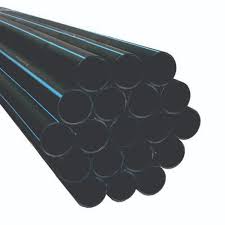Aug . 16, 2024 20:26 Back to list
High-Density Polyethylene Pipes for Irrigation Systems by Leading Manufacturers
DN150 HDPE Pipe for Irrigation A Comprehensive Overview
In the world of agriculture and landscape irrigation, the choice of materials is critical for the efficiency and sustainability of water distribution systems. Among various options, DN150 HDPE (High-Density Polyethylene) pipes have established themselves as a popular choice for irrigation manufacturers. This article delves into the features, benefits, and applications of DN150 HDPE pipes, shedding light on why they are favored in the irrigation industry.
What is DN150 HDPE Pipe?
The term DN150 refers to the diameter nominal size of the pipe, which is 150 millimeters. HDPE pipes are known for their remarkable strength, flexibility, and resistance to corrosion and chemicals. They are manufactured from high-density polyethylene, a type of plastic that offers excellent durability and performance in various environmental conditions.
Characteristics of DN150 HDPE Pipes
1. Durability One of the standout features of DN150 HDPE pipes is their ability to withstand extreme conditions, including high pressure and temperature variations. This durability ensures a long lifespan, making them a cost-effective choice for irrigation systems.
2. Corrosion Resistance Unlike metal pipes, HDPE pipes do not corrode, which means they can transport water without the risk of contamination or structural failure. This characteristic is particularly important for maintaining the quality of irrigation water.
3. Lightweight and Flexible HDPE pipes are significantly lighter than traditional materials such as PVC or metal, which simplifies handling and installation. Their flexibility enables them to be easily bent, reducing the need for fittings and joints.
4. Leak-Proof Joints The fusion welding method used in joining HDPE pipes results in seamless connections that are leak-proof. This reduces the loss of water and minimizes the risk of soil erosion in irrigation applications.
dn150 hdpe pipe for irrigation manufacturers

5. Eco-Friendly HDPE is a recyclable material, contributing to sustainable practices in agriculture. Using HDPE pipes minimizes environmental impact, aligning with modern eco-conscious agricultural practices.
Applications in Irrigation
DN150 HDPE pipes are widely utilized in various irrigation systems
- Drip Irrigation In precision agriculture, DN150 HDPE pipes can be used as mainlines for delivering water directly to the crops, ensuring efficient use of resources and minimal evaporation losses.
- Sprinkler Systems These pipes serve as the backbone for sprinkler systems, facilitating wide-area irrigation for fields, gardens, and lawns.
- Water Distribution Networks In large-scale irrigation projects, DN150 HDPE pipes are essential for creating a robust network for distributing water across different zones efficiently.
Conclusion
The adoption of DN150 HDPE pipes in irrigation systems represents a significant advancement in agricultural practices. Their durability, resistance to corrosion, lightweight nature, and eco-friendliness make them an ideal choice for irrigation manufacturers looking to enhance efficiency and sustainability. As the demand for efficient water management in agriculture continues to rise, DN150 HDPE pipes will undoubtedly play a crucial role in shaping the future of irrigation systems worldwide.
In conclusion, whether for large-scale agricultural operations or small gardens, choosing DN150 HDPE pipes can lead to long-term benefits in irrigation efficacy, resource conservation, and environmental stewardship. Manufacturers focusing on these pipes are poised to meet the increasing demand for sustainable irrigation solutions.
-
High-Quality PVC Borehole Pipes Durable & Versatile Pipe Solutions
NewsJul.08,2025
-
High-Quality PVC Perforated Pipes for Efficient Drainage Leading Manufacturers & Factories
NewsJul.08,2025
-
High-Quality PVC Borehole Pipes Durable Pipe Solutions by Leading Manufacturer
NewsJul.08,2025
-
High-Quality PVC Borehole Pipes Reliable PVC Pipe Manufacturer Solutions
NewsJul.07,2025
-
High-Quality UPVC Drain Pipes Durable HDPE & Drain Pipe Solutions
NewsJul.07,2025
-
High-Quality Conduit Pipes & HDPE Conduit Fittings Manufacturer Reliable Factory Supply
NewsJul.06,2025

